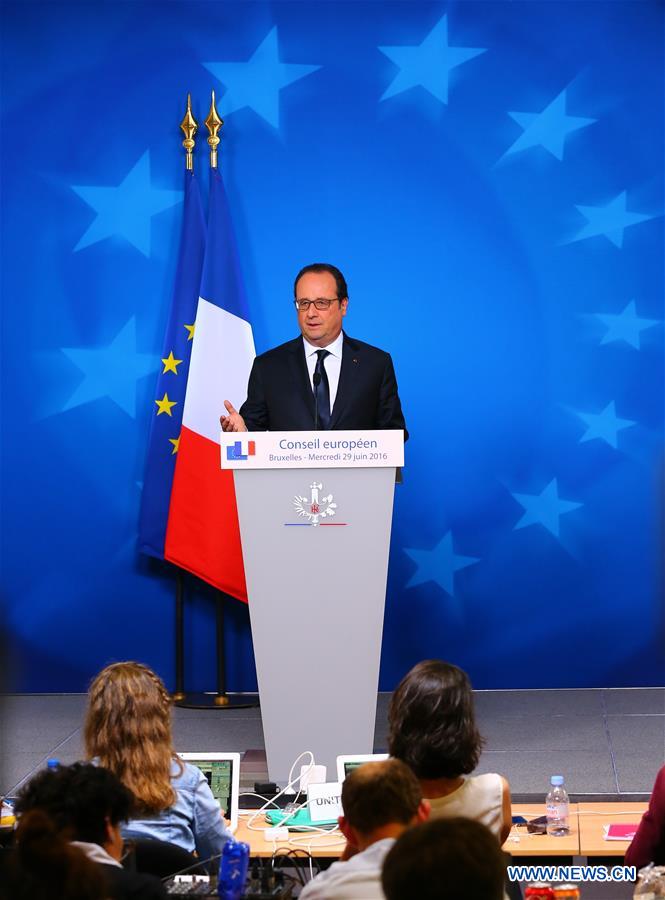Related reading:
BRUSSELS, July 20 (Xinhua) -- The European Union (EU) is mulling over the choice to abolish its "non-market economy" list, on which China and 14 other countries are included, and set up a new "country-neutral" method to reform its anti-dumping and anti-subsidy legislation, it was announced Wednesday.

BRUSSELS, June 29, 2016 (Xinhua) -- French President Francois Hollande attends a press conference at the EU headquarters in Brussels, Belgium, June 29, 2016. European Council President Donald Tusk said on Wednesday that leaders of the 27 non-UK European Union countries have agreed that they would not grant Britain access to the block's single market if Britain did not accept EU's rules on free movement. (Xinhua/Gong Bing)
The decision was made after the European Commission held the second orientation debate on the treatment of China in anti-dumping investigations, as the 15-year-old "surrogate system" is set to expire in December.
"The colleagues have agreed to propose changes to the EU anti-dumping and anti-subsidy legislation with the introduction of a new anti-dumping methodology," said EU Trade Commissioner Cecilia Malmstrom in a press briefing.
"We are eliminating the existing list of non-market economy countries," Malmstrom told reporters. "This is a new method, it will be country-neutral and will be applied equally to all World Trade Organization (WTO)" members.
People shouldn't focus on "market economy status" because it does not exist anymore, said European Commission Vice President Jyrki Katainen, who oversees the jobs, growth, investment and competitiveness dossier.
The EU has two lists for countries (economies) for calculating in anti-dumping cases, one with market economy status countries (economies) and the other with countries (economies) who are regarded as "non-market economies", and the dumping margins are measured in two ways.
For Chinese imports, as China is on the "non-market economies" list, the EU could compare prices with that of a third country, or a surrogate country, instead of Chinese domestic prices, to conclude whether Chinese products are dumped in the EU. But this method, according to WTO rules, will expire on Dec. 11.
"We are willing to fulfill our legal obligations and it means we change the way we calculate dumping and subsidy cases," said Katainen.
With this proposal, the EU would create an additional non-standard methodology. This new methodology would lead to approximately the same level of anti-dumping duties as the EU has currently, commissioner Malmstrom said.
EU officials said the new method would mark a "huge change" to the bloc's anti-dumping and anti-subsidy laws and the European Commission would have to shoulder the burden to prove there is "market distortion" in its future investigations on a case-by-case basis.
Besides China, other countries on the EU's "non-market economies" list include Vietnam, Kazakhstan, Albania, Armenia, Azerbaijan, Belarus, Georgia, the Democratic People's Republic of Korea, Kyrgyzstan, Moldova, Mongolia, Tajikistan, Turkmenistan, and Uzbekistan.















